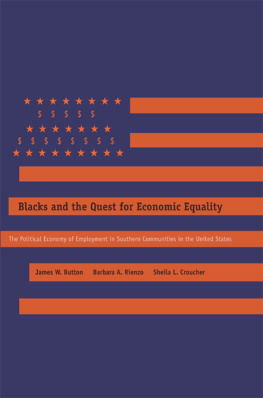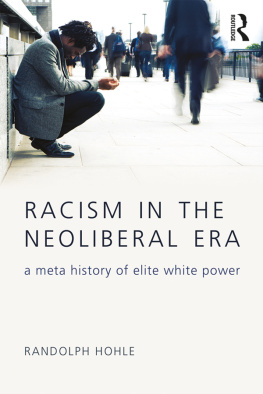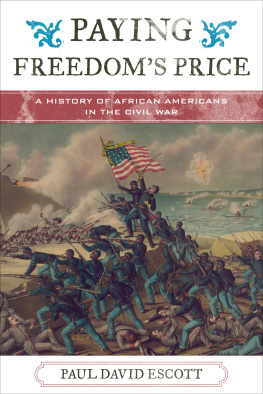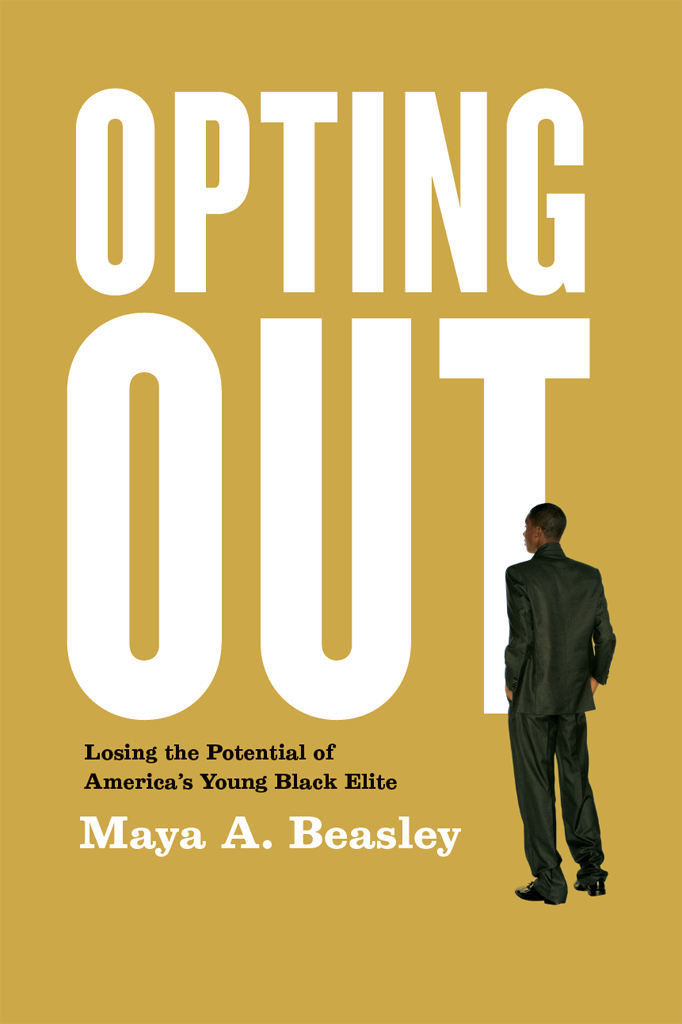OPTING OUT
Losing the Potential of
Americas Young Black Elite
Maya A. Beasley
THE UNIVERSITY OF CHICAGO PRESS
CHICAGO & LONDON
MAYA A. BEASLEY is assistant professor in the Department of Sociology and a member of the advisory board of the Institute for African Studies at the University of Connecticut.
The University of Chicago Press, Chicago 60637
The University of Chicago Press, Ltd., London
2011 by The University of Chicago
All rights reserved. Published 2011.
Printed in the United States of America
20 19 18 17 16 15 14 13 12 11 1 2 3 4 5
ISBN-13: 978-0-226-04013-4 (cloth)
ISBN-13: 978-0-226-04014-1 (paper)
ISBN-10: 0-226-04013-5 (cloth)
ISBN-10: 0-226-04014-3 (paper)
ISBN-13: 978-0-226-04012-7 (e-book)
Library of Congress Cataloging-in-Publication Data
Beasley, Maya A.
Opting out: losing the potential of Americas young black elite / Maya A. Beasley.
p. cm.
Includes bibliographical references and index.
ISBN-13: 978-0-226-04013-4 (cloth : alk. paper)
ISBN-10: 0-226-04013-5 (cloth : alk. paper)
ISBN-13: 978-0-226-04014-1 (pbk. : alk. paper)
ISBN-10: 0-226-04014-3 (pbk. : alk. paper)
ISBN-13: 978-0-226-04012-7 (e-book) 1. African AmericansEmployment. 2. African AmericansEducation (Higher) 3. Discrimination in employment. 4. Income distributionUnited States. I. Title.
HD8081.A65B43 2011
331.6'396073dc22
2011016216
 This paper meets the requirements of ANSI / NISO Z39.48-1992 (Permanence of Paper).
This paper meets the requirements of ANSI / NISO Z39.48-1992 (Permanence of Paper).
CONTENTS
LIST OF ILLUSTRATIONS
ACKNOWLEDGMENTS
The inspiration for this book comes from my time in Palo Alto toward the end of the dot-com boom. As a graduate student living on a small stipend, I was keenly aware of the immense wealth flowing through Silicon Valley and the opportunities being taken up by young professionals. As a woman of color, however, I was also acutely aware of the dearth of African Americans that were a part of this phenomenon. I had known many intelligent, creative black students during my college years at Harvard, and as a graduate student at Stanford I encountered a diverse undergraduate student body. I wondered how it was that Harvard and Stanford had relatively large black undergraduate populations, yet so few of the professionals I observed off campus were black.
I am therefore especially appreciative of the faculty and staff at Stanford University who encouraged me to pursue this question. Doug McAdam, Susan Olzak, and Monica McDermott provided me with excellent guidance and support in my initial examination of this issue. I am also grateful for the help I received from Claude Steele and everyone else at the Center for Comparative Studies in Race and Ethnicity. I will forever appreciate the assistance and exposure to interdisciplinary work they provided me, which was critical to writing this book. I am also indebted to Provost John Etchemendy for taking an interest in this research and providing essential financial support.
My editor Elizabeth Branch Dyson deserves special acknowledgment. She saw me through the publication process with patience and wisdom. I will always be grateful for her sincere interest in this project and the excellent advice she provided me from beginning to end. I could not have asked for an editor more intelligent, insightful, or genuinely nice.
I have also been fortunate to have received editorial advice and moral support from a variety of people. I am particularly grateful to Kyra Greene for all the assistance and encouragement she provided from the conception of this project onward. At a time when others questioned my interest in studying this group of students, she offered encouragement and insight. I am also grateful for her many, many readings of my manuscript; her honesty about the substance of my writing was invaluable. Simon Weffer and Yang Su also provided significant feedback for which I am extremely appreciative.
I am also indebted to my parents, Roy Beasley and Judith Fieldstone, for the lifetime of support and encouragement they have given me. I am especially thankful for all the time my father spent discussing, editing, and helping me to see the value of this work. The older I get, the more I recognize how fortunate I am to have parents I both love and admire.
Last, but not least, I am grateful to all of the students who participated in this research. They spoke openly about their aspirations, experiences, and thought processes, and I greatly enjoyed interviewing each one of them. Their candor and willingness to discuss sensitive issues were crucial to making this book possible.
INTRODUCTION
The Negro race, like all races, is going to be saved by its exceptional men.
W. E. B. DUBOIS, The Talented Tenth
On July 2, President Johnson signed into law the 1964 Civil Rights Act prohibiting discrimination in public facilities, education, and employment. This act, coupled with the initiative of a number of colleges and universities across the country, produced a significant rise in black college attendance. By 2000, nearly 18 percent of African Americans aged 25 to 54 had received at least a bachelors degree compared with only 7 percent in 1969 (US Census Bureau 1973, 2001). While college education is inarguably a key factor in the upward mobility of African Americans, blacks with college degrees still face considerable hurdles. Indeed, over this same period of time, the difference in average earnings of black and white college graduates dropped by only one percentage point (US Census Bureau 1973, 2001). Thirty-five years after racial discrimination was legally banned, the question remains: what continues to hold African Americans back, if not the law?
The persistence of inequality among well-educated African Americans is at odds with claims that members of this population are the privileged beneficiaries of civil rights legislation. Certainly, relative to their low-income counterparts, the black middle class has been in a better position to profit from the efforts of the civil rights movement. That is, affirmative action and the Civil Rights Act largely served well-educated African Americans who were able to take advantage of the growing corporate and government sectors in the 1960s and 1970s, while lower-class, less-educated African Americans suffered severely from the decline of the manufacturing industry (Wilson 1978). Yet as previous research can attest, legislation has proved incapable of leveling the playing field for well-educated African Americans, and the black middle class is considerably poorer and less advantaged than its white counterpart (Landry 1987; Oliver and Shapiro 1997; Pattillo-McCoy 2000; Collins 1997).
Despite the stark contrasts in the educational and occupational achievements between well-educated whites and African Americans, the majority of contemporary research on black inequality has concerned African Americans living in poverty. This may reflect the compelling findings and rich data sources available to those focused on the urban underclass, or it may indicate a strong ascription to the Rawlsian principle of helping the most disadvantaged in society. Nonetheless, to focus primarily on only one segment of the population is to overlook the severe problems and consequences of other economic sectors within the black population. While poverty, with all its associated handicaps, is inarguably a significant contributor to the continuing economic and status disparities between African Americans and whites, the greatest differences remain at higher levels of income and education.







 This paper meets the requirements of ANSI / NISO Z39.48-1992 (Permanence of Paper).
This paper meets the requirements of ANSI / NISO Z39.48-1992 (Permanence of Paper).